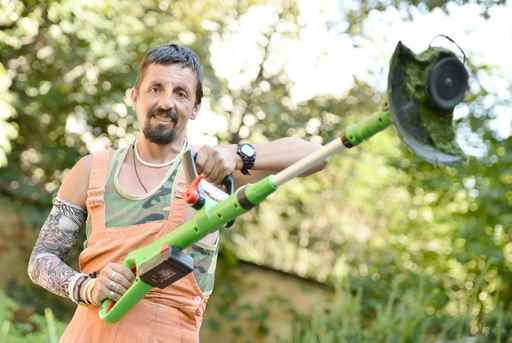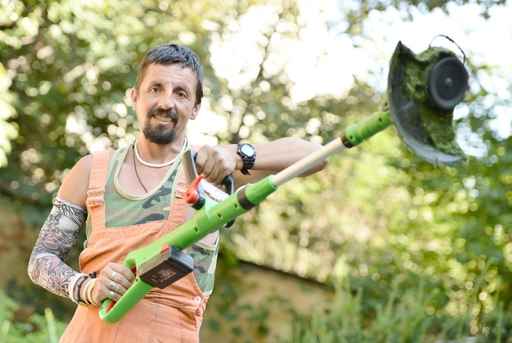
In our previous article, we wrote about a couple good reasons to hire a lawn care company. If you’re set on paying someone to cut your grass, then you’ve reached your next snag: how to know you’re hiring a good company. In the lawn care industry, it’s even trickier because of how decentralized the industry is. This causes massive variance between companies. Some will be amazing. Some will be terrible. How do you tell the difference? Here are a few answers you’re want to find:

1. How’s their reputation?
The internet has changed many things in our day-to-day lives. One way is that we can now instantly read and review companies to check out their reputations. While Yelp reviews don’t provide the whole story (usually only really positive and really negative experiences are written about), it does provide a good glimpse at what you’re getting into. Also, if the company has tons and tons of negative reviews and detailed accounts of inadequacy, you can probably count on them to be a shoddy company. In addition, ask your neighbors which company they use and what they think of them. This is a good research method to find good companies, and it’s also effective in weeding out unreliable or expensive companies that your neighbors are not satisfied with.
2. Are they licensed and insured?
Being licensed and insured is a must. But it’s not the standard. I bet you know somebody who pays under the table for lawn care. It’s very common. You might even do it yourself. We’re suggesting you might want to stop that practice, for a couple of reasons. One, if they’re licensed and insured, then you know they’ve dedicated their life’s work to being a professional. They’re not just trying to make a quick buck on the side. Two – and more importantly – if they get injured on your property, you’ll likely be liable. Not only that, if their mower hucks a rock through your window, their insurance won’t cover the damage. Trust us, get someone with a license and insurance.
3. Do they belong to professional or trade organizations?
While there’s no doubt you can find a plentiful supply of lawn care professionals who do not belong to trade organizations, those that do are a special breed. Why? Because being a member of a trade organization means they’ve committed to their craft. They’ve committed to continual learning. They’ve committed to following the standards of the lawn care industry. Look for lawn care companies belonging to state organizations, but also look for those in national organizations like PLANET.
4. How is their customer service?
Good customer service from a lawn care company seems to be a diamond in the rough these days. It’s tough to get a quote. It’s a hassle to sign up. It’s even more difficult to modify service or get specialty jobs done. Many companies are disorganized, and you’ll spend way too much time playing phone tag (which is why we suggest lawn care companies because ’email first’ businesses). So in that case, look for a company with an office manager or owner-operator who will always respond promptly and reasonably. Look for a lawn care company that is up-to-date on technology, reachable through email/social media, and preferably one that uses lawn care scheduling and billing software. If you’re investing your hard earned cash into a long term relationship with a lawn care company, auditing for customer service in the beginning will save you a lot of time and stress in the end.
5. How do they maintain their equipment?
A good question to weed out low quality lawn care providers: “How often do you sharpen your blades?” This is a frequent disparity between your average DIYer and a lawn care company. A professional can tell the difference between grass cut with a dull and a sharp blade. Dull blades make grass look tattered and brown on top. If you’re mowing your own lawn, you’d generally change your blade once or twice per year. Good lawn care companies usually sharpen or change blades every 1-2 days. Here’s a quick rule of thumb: ask them how many mowing hours they go through before changing/sharpening blades. The answer should be no more than 10 hours.
6. Do they require contracts?
In this industry, it’s commonplace to require lengthy contracts. Don’t be surprised if your lawn care company asks for this. However, we don’t like this practice. If you can, see if they’ll let you go without a contract. Or at the very least, ask about a trial period. Good companies will accommodate. They’ll be confident that their good work will keep you paying.
7. How reliable will they be?
You’d be surprised how many people come to LawnStarter because their last lawn care provider “just disappeared.” One week they’re mowing and fertilizing your lawn, the next week they’re gone with no trace. What’s the deal? Sometimes, companies simply don’t have the operational capacity to expand, and they collapse. For example, we started running our lawn care services in Austin, TX, but since it’s been so successful, we’ve expanded our lawn mowing services to Pflugerville, Round Rock, and even as far as San Antonio. Doing this, we’ve had to be very critical of our operations so that we didn’t slack on current customers. To weed out companies that are unreliable, you can look at their online reviews. Better yet, ask them for personal references before you sign up. It can be a little awkward, but if they are enthusiastic and have many references you can ask, then that’s a wonderful sign. If they’re reticent, be wary. When you do talk to their references, make sure you get a good amount of information: how long they’ve worked together, quality, reliability, affordability, flexibility, etc. Personal references are one of the best ways to get a reliable judgement of a new lawn care company.
Like any industry, there are plenty of duds out there. But there are also many amazing, attentive, and reliable lawn care companies out there as well. What do you look for in a great lawn care company? Do you have any horror stories or bad experiences?